In this article, we’ll give an overview of some sneaker companies that have embraced sustainability.
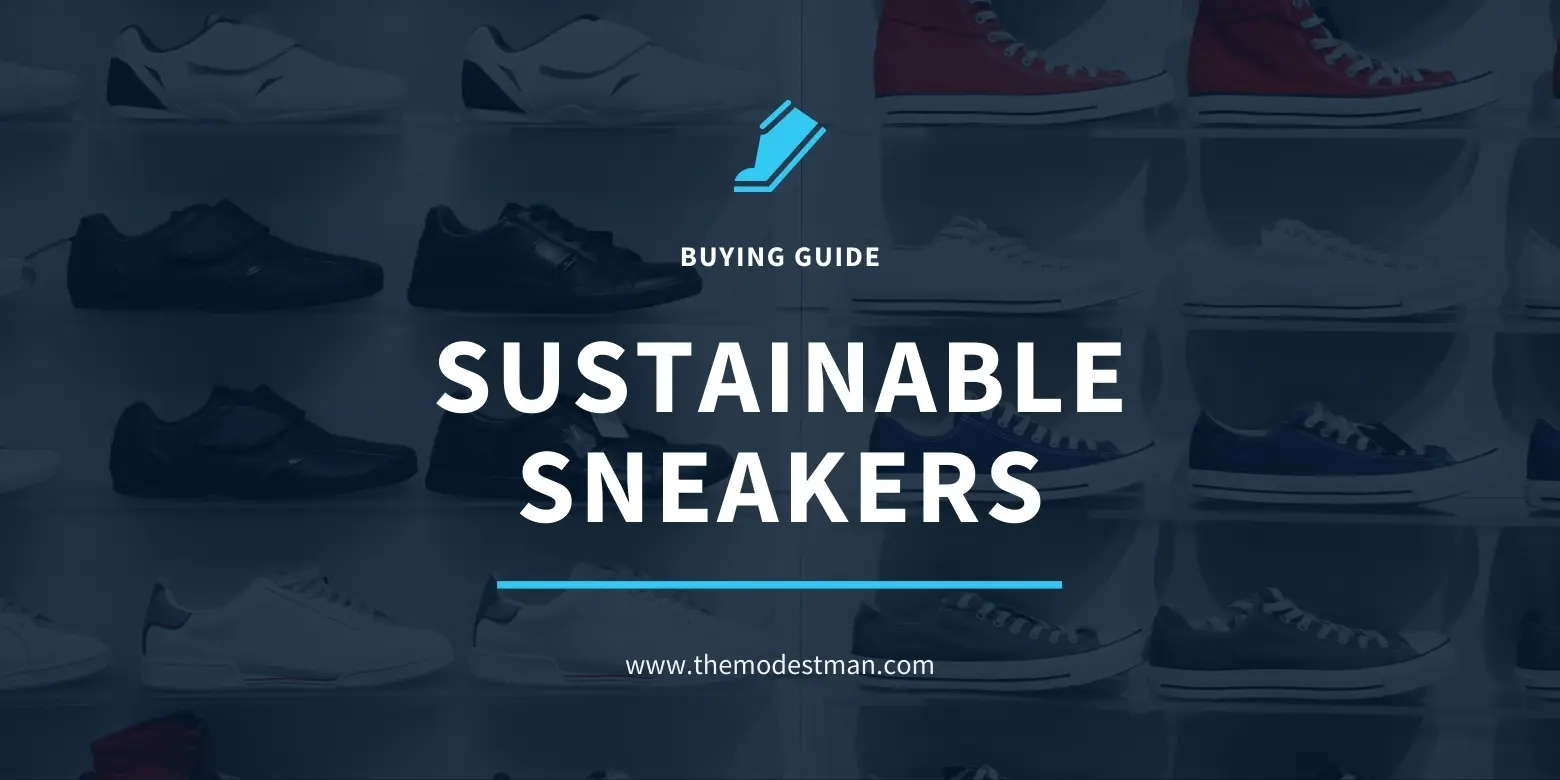
Athletic shoes…sneakers…running shoes…trainers…gym shoes. There are numerous names for this $180 billion industry that’s still growing, but they all refer to the same product.
While
Not only are 300 million of the 23 billion pairs made every year thrown out, it takes 30-50 years for them to decompose in landfills, and when they do, their various parts release toxic chemicals from glues, plastics, rubber and polyester.
Sneakers are among the most ecologically harmful products that we can own. Just making a single pair generates 30 pounds of CO2.
Although shoes, in general, have been the slowest wearable to jump on the sustainability bandwagon, more and more companies are acknowledging the need and desire for ecologically safe and ethically made
This has been driven, in part, by Millennials, 40% of whom say that they prefer brands that support a social mission.
In addition to being sustainable, many of the brands highlighted in this article support programs such as Soles 4 Souls, Trickle Up, One World Running, Parley for the Oceans and One-for-One donation programs.
What is interesting is the variety of companies that have embraced sustainability.
They include the largest athletic companies (Nike, Adidas & Reebok), casual shoe manufacturers (AllBirds & Tom’s), and start-ups whose founding mission was to create a sustainable sneaker (Nothing New & Cariuma).
Whether you feel most comfortable buying an old standard or are looking for the next new fashion trend, you can find sustainable
Determining Sustainability
What makes a sneaker sustainable? First, it must be durable. Regardless of how ecologically positive the components, if the
Daniel McLoughlin, a sneaker expert for RunRepeat, says that “buying a sustainable pair that only lasts for a couple months is probably less eco-friendly than buying standard shoes and wearing them for years.”
Shoes can be made from recycled materials: polyester, plastic, rubber and leather. They should also be recyclable. This is more difficult with
If not recyclable, materials should be renewable and responsibly sourced. This applies to wood-based fibers like eucalyptus, wool, cotton, and packaging materials.
Finally, many manufacturers are innovating new materials from corn, rice, castor oil and creating new types of plastic to replace their unsustainable counterparts. The results are functional and durable, high performance shoes that are better for the environment.
Large Athletic Companies That Embrace Sustainability
Here are some companies (that you’ve most likely heard of) who are embracing sustainability…
Nike
Nike just did it by becoming one of the first sneaker companies to embrace sustainability. They are by far the largest athletic company in the world with revenues of $22.3 billion in 2019.
Their share of the marketplace continues to increase, even without publicizing their sustainability practices. In 2019 they were recognized by the Textile Exchange for using the most recycled polyester in the industry for the 6th year in a row.
They have transformed 6.4 billion plastic water bottles into recycled footwear or apparel. Their Flyknit material is made, in-part, from recycled plastic.
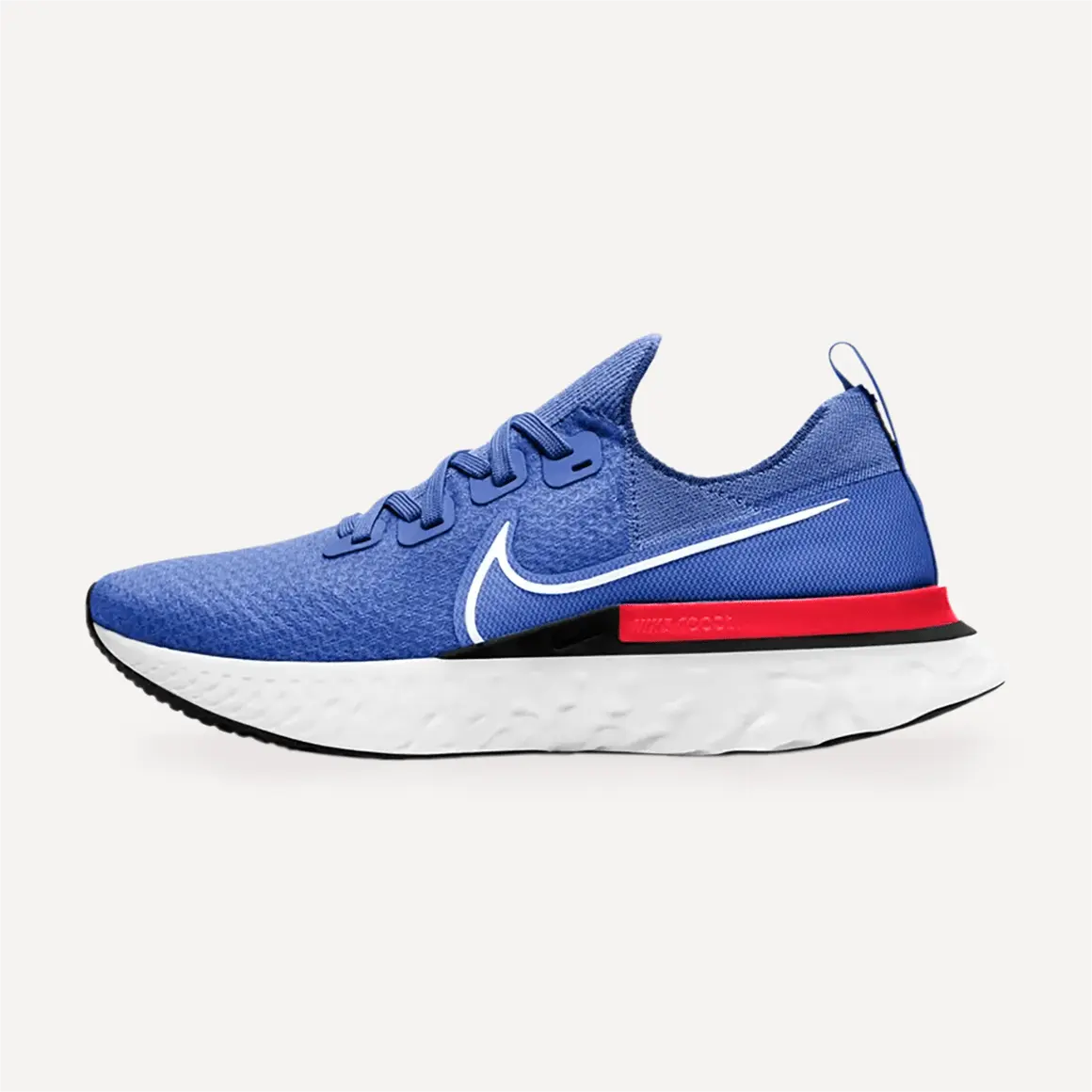
Nike has also spearheaded a material called Flyleather. This looks and feels exactly like pure leather, but is created by binding 50% recycled leather to an underlying material.
The final product is 40% lighter and 5 times more scratch-resistant than real leather. Not only does their process use an eco-friendly, water-powered procedure, it keeps waste away from landfills.
Adidas
Adidas is the second largest athletic company in the world. Their sales rose by almost 50% in 2017. They are the most vocal large shoe manufacturer about their commitment to the environment.
Their company has said, “It’s time to start thinking more about sustainability and how we can all make small changes to benefit the environment. Firstly, as consumers we should be buying less, and buying smarter.”
They paired up with Parley for the Oceans in 2015 to manufacture
In addition to the knit material in the body of the shoe, (7 plastic bottles), Adidas also uses recycled plastic in the laces and the heels’ lining. Adidas sold 1 million pairs in 2017, 5 million in 2018, and the goal for 2019 was 11 million pairs.
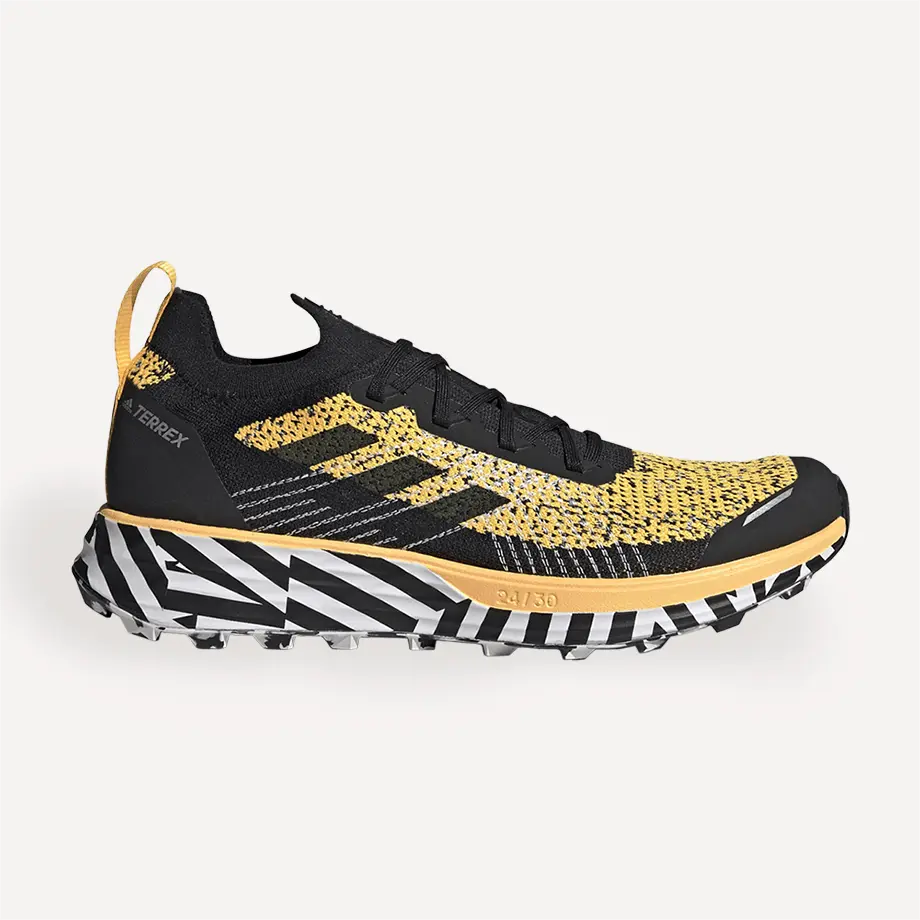
Parley for the Oceanscollects waste plastic from the water, remote beaches and coastal communities and uses a low energy and water usage system to process it.
They send the cleaned materials to Adidas where it’s formed and spun into “Ocean Plastic” high-performance yarn. So far, they have kept 2,810 tons of plastic out of the ocean.
Each item in the Ocean Plastic collection has a minimum content of 75% trash and the company is committed to transitioning to fully recycled plastic by 2024.
Adidas also has a philanthropic mission. They have donated $1.68 million to the sustainability non-profit organization Fashion for Good. This amount is equal to the environmental cost of the plastics used in their supply chain.
Reebok Cotton & Corn
While not quite as large as Nike or Adidas, Reebok is another major athletic company that is committed to sustainability. They have created a line of unisex
The entire shoe is made up of biodegradable materials. It’s USDA certified and the first 75% bio-based shoe.
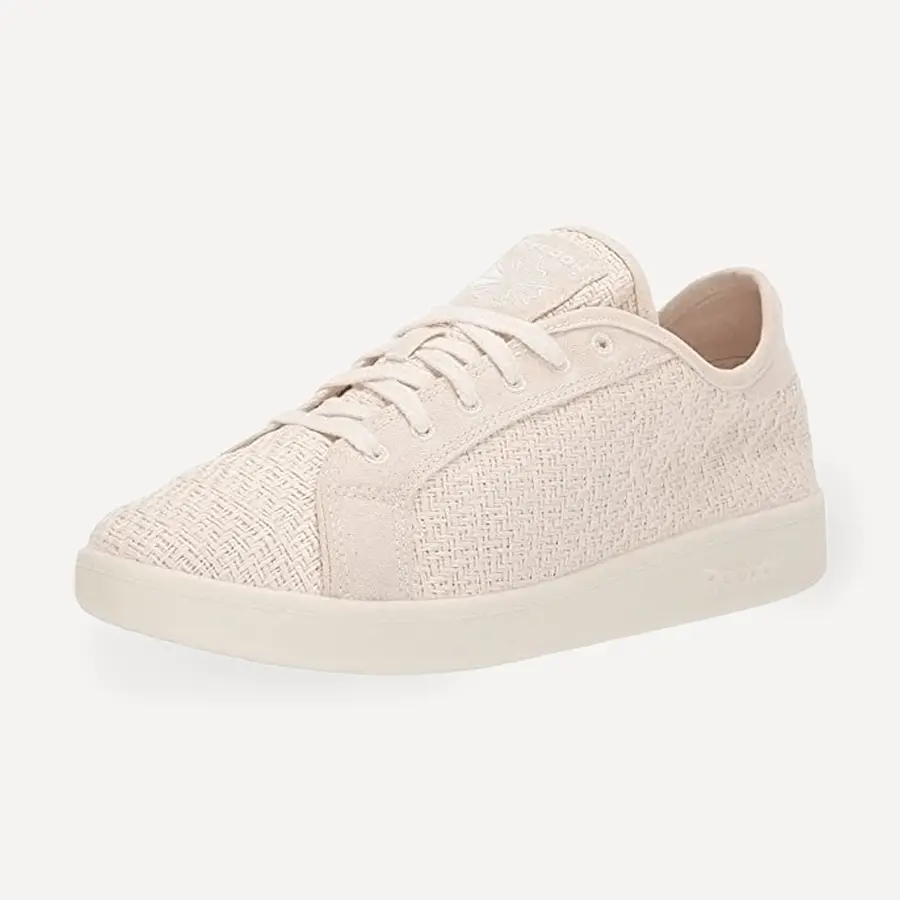
The shoe’s upper is made from 100% cotton, the TPU sole is derived from corn, and the insoles are made from castor bean oil. The shoes are wrapped in 100% recycled packaging. Needless to say, the shoes are completely vegan.
Converse
If you are a fan of the classic Converse All-Stars and sustainability, you’re in luck! Converse has created their Renew line. The canvas upper is actually 100% recycled plastic from the US based recycling company First Mile.
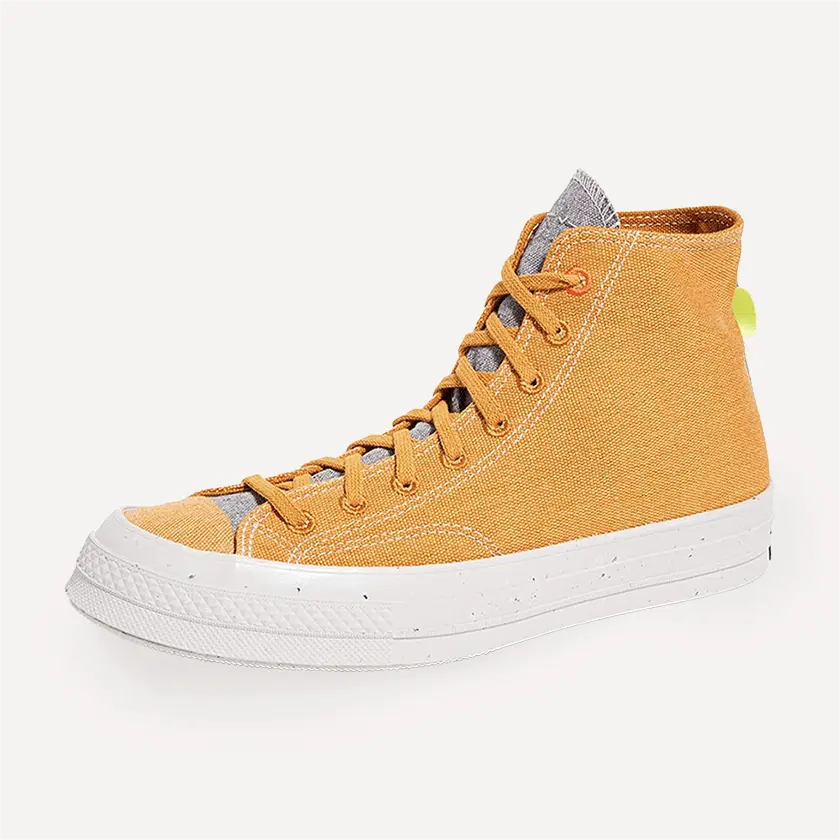
The sides of the shoe are fully customizable and sizing from toddler to adult is available. Many of their styles feature Nike Grind rubber as part of their soles.
Casual, Fashionable & High-Performance Alternatives to the Big Name Brands
While the following manufacturers are as well known for their more casual shoes as their
AllBirds
AllBirds is best known for their washable merino wool
Comfort aside, AllBirds is an extremely sustainable company.
Shoe uppers are made from either ZQ Merino wool (ensuring that the most stringent animal welfare standards are met) or sustainably-sourced eucalyptus viscose.
The eucalyptus harvesting is certified by the Forest Stewardship Council. By using these sustainable, natural materials, their shoes use 60% less energy in production than synthetic shoes.
The Tree Dasher shoe emits only 9.0 kg of CO2e during the entire production process – 30% less than the typical sneaker.
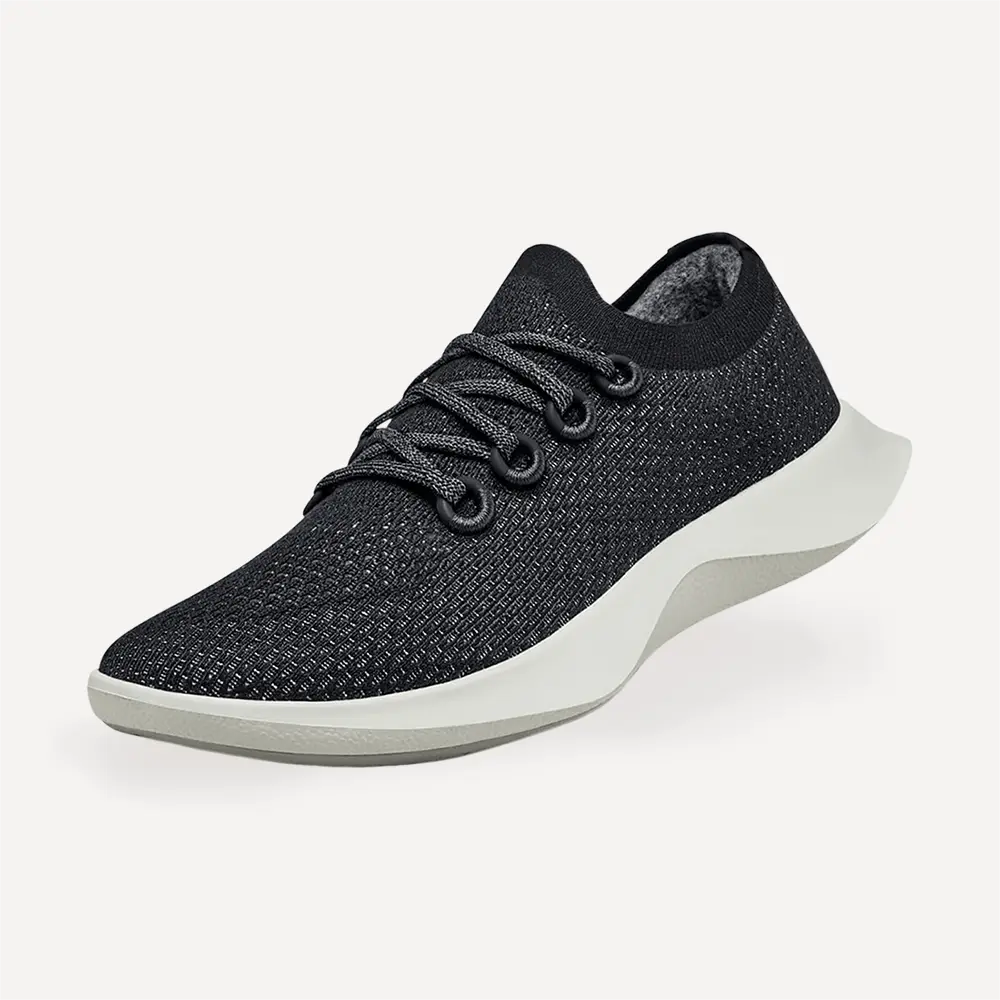
Beyond the upper materials, AllBirds uses recycled plastic from bottles for the shoelaces, and recycled plastic and castor bean oil for the inner parts of the shoes. Even the eyelets are made from bio-TPU micro-organisms that eat plant sugars.
The shoes’ soles are made from a patented material named SweetFoam. Using sugar cane they have created the world’s first carbon negative, green, EVA sole.
AllBirds has made the patent public so that other brands can use this sustainable alternative. They added natural rubber traction pads to increase stability.
Their packaging is also sustainable. In addition to the 90% post-consumer recycled cardboard, AllBirds has engineered a recyclable shoe box that doubles as an all-in-one shopping bag and mailer. All packaging is certified by the Forest Stewardship Council.
The company is so committed to environmental sustainability that they are self-imposing a carbon tax to offset the emissions it generates on each pair of
For every ton of carbon the company emits, they will pay to take a ton of carbon out of the atmosphere by purchasing credits from third party emission reduction products, known as carbon offsets.
In addition to their environmental consciousness, AllBirds is a Fair Trade company with WRAP certified production facilities and they donate to Soles4Souls.
If you want to learn more about Allbirds products, you can see our review here.
Tom’s – Earthwise
Tom’s spearheaded the buy-one-give-one program of donation. This isn’t the only reason to shop Tom’s; their shoes speak for themselves. They make a quality, sustainable product, experimenting with new fabrics and processes.
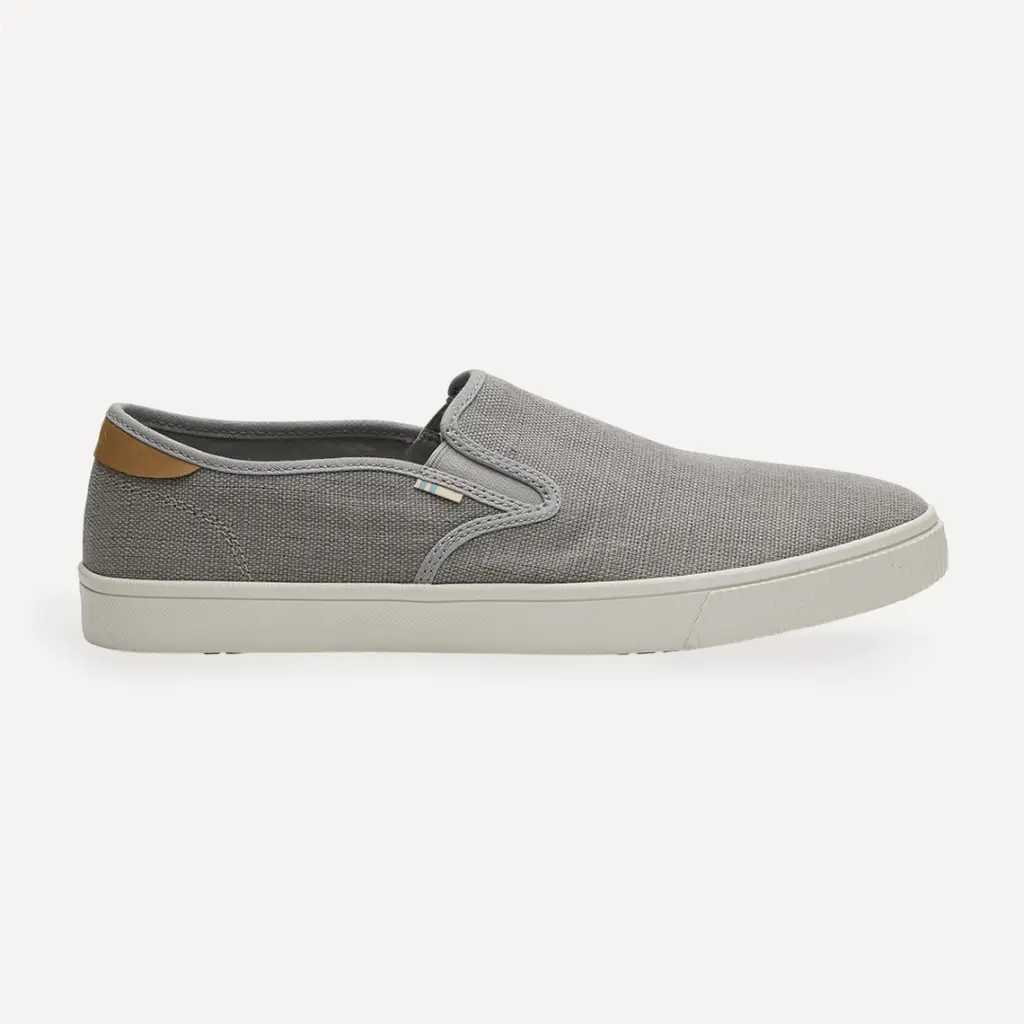
Repreve is one of the fabrics Tom’s has introduced into their line. It’s constructed with post-consumer plastic bottles, diverting plastic waste from oceans. All of their fabrics are dyed with chemical-free plant-based dyes.
Their shoe linings are made from Tencel Lyocell and the wood pulp is harvested from responsibly managed forests. Their insoles are made from OrthoLite, another innovation, made from 26% earth-friendly materials, mainly recycled or plant-derived.
As you can see, Tom’s uses vegan and environmentally friendly materials wherever possible. In addition to their high-tech materials, they also use hemp, cotton, and recycled polyester and all dyes are natural botanically based. Their Air line of shoes is composed of at least 50% recycled manufacturing waste.
As an organization, Tom’s is a certified B Corporation. Their facilities divert more than 95% of their waste from landfills. Their packaging is made of at least 80% recycled materials.
They also have a foundation that has donated to COVID-19 relief, organizations that promote racial and social equality and mental health.
So, in addition to getting a new pair of affordable shoes, you have helped the environment, and Tom’s donates an equal quality, new pair of shoes to someone in need – one of over 100 million so far.
Nothing New
There is nothing old about start-up Nothing New, except their materials. As the name suggests, they use only recycled materials. Sustainability is the very core of this brand. Their goal is to positively impact the planet and educate the people that live on it.
Uppers are made from 100% post-consumer recycled plastic, while other components are made from recycled cotton, fishing nets, rubber and cork.

Each pair uses the plastic from 5.6 bottles. Their processing uses 160 gallons of water less than normal cotton and Nothing New uses true stitch construction rather than vulcanized construction, further reducing their toxic footprint.
Their goal is to make all the components of their shoes not only functional and sustainable, but stylish.
Nothing New takes sustainability one step further by offering a $20 discount on new orders when you send back your used
Veja
Veja takes pride in crafting shoes that last while minimizing negative impacts on people and the planet. They focus on transparency, ethical production using organic materials and zero waste. Their offerings include unisex and vegan options.

For instance, they use natural wild rubber, when possible, and source their organic cotton up to a year before production by working with farmers to create a sustainable and Fair Trade supply chain.
Although these steps may cost as much as 5 times more than traditional options, the end result is a beautiful shoe that is still affordable and good for the planet.
Vivobarefoot
Vivobarefoot is another new company that is focused on building an ethical and sustainable brand. They build their shoes around the foot’s anatomy and they are meant to feel as if you are walking in your bare feet.
Starting with the premise that poorly made shoes actually cause injuries, they have used anatomical science to build a better shoe (see site for an in-depth explanation).
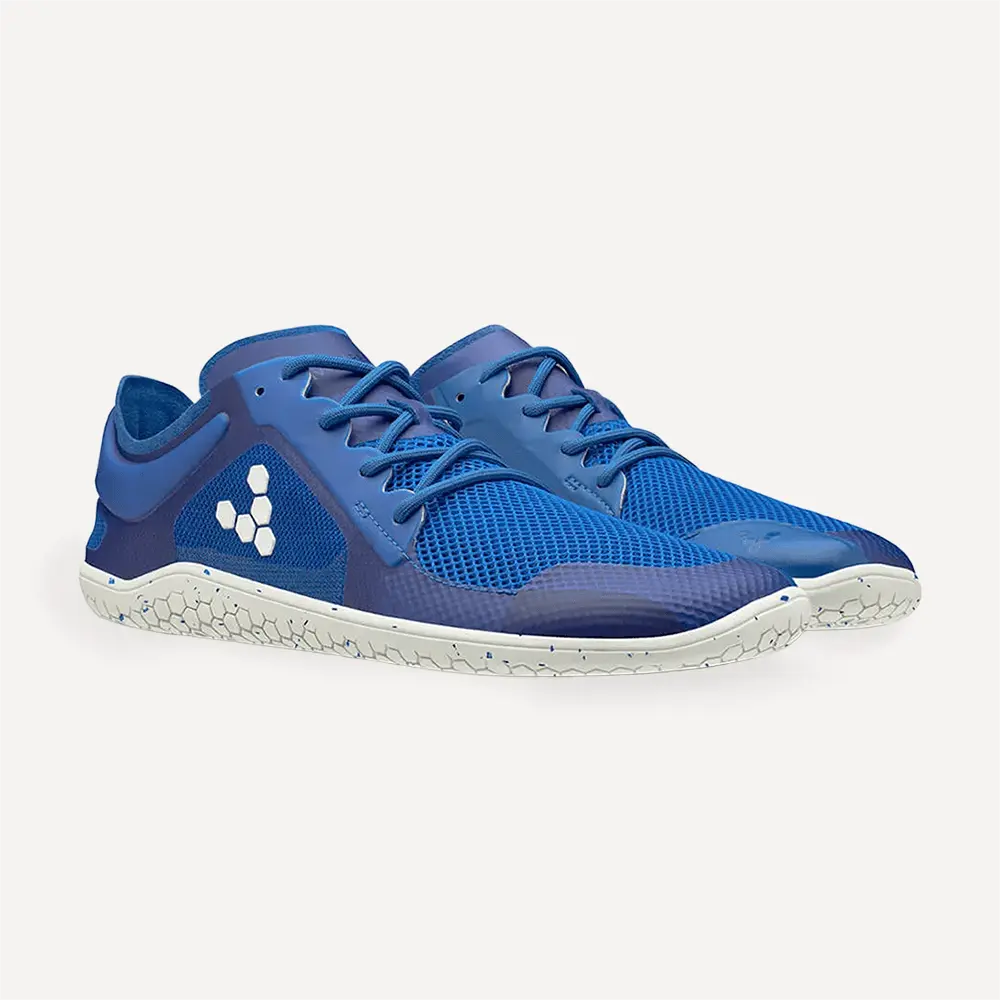
In addition to advanced engineering, Vivobarefoot uses natural materials such as cork, recycled rubber and natural yarns. Everything is sustainably sourced and enumerated on their website.
For instance, leathers are sourced from wild-roaming cattle and their hides are sustainably tanned. If plastics are used, they are made from recycled PET.
All of their processes use minimal water. Their end goal is to create shoes good for the wearer that have no negative effects on the environment and the communities involved in the production process. They use minimal energy and are working toward zero waste.
Cariuma
Cariuma is a bit different than some other sustainable companies in that they don’t use post-consumer or used materials. Instead, they choose to rely on sourcing their

Their site provides a detailed description of each source. All cotton is Fair Trade and rubber is tapped from trees without harming them. Any and all leather used must meet very strict standards and be vegetable-dyed. They make their insole from memory foam.
Their commitment extends to their packaging where everything is 100% recycled and recyclable and their suppliers are all certified by the Forest Stewardship Council. Finally, the company purchases carbon offsets for every single shoe it ships so that they are 100% carbon neutral.
Conclusion
Manufacturers are becoming more and more conscious of sustainability. The sneaker market is a perfect example of how awareness and innovation can take an extremely unsustainable, non-recyclable product and make it eco-friendly without sacrificing performance, durability or style.
“Sustainability is no longer about doing less harm. It’s about doing more good.”
Jochen Zeitz, President & CEO of Harley Davidson, former Chairman & CEO of Puma
So many of the companies highlighted above have created new materials that are bio-based or have recycled plastics in new ways. Many are sharing their innovations to make
Beyond innovation in construction materials, they are considering packaging and recyclability. Companies, large and small, established or start-up, are finally bringing creativity to this essential market.
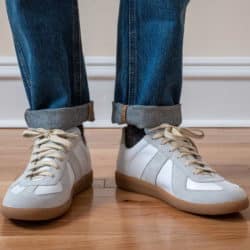
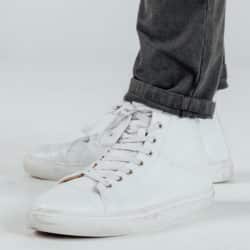
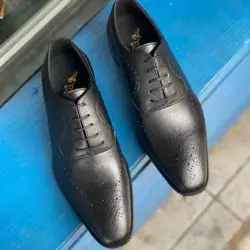
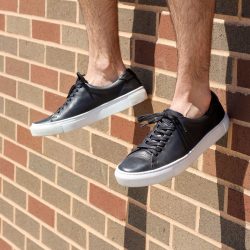


Ask Me Anything